Studytrip: My Favourite Visit
If I have to talk about the most interesting visit in China, there is no doubt that it was the week end in Beijing. Beijing is the capital of China, and one of the cities with more inhabitants in the world (21,150,000). We arrived there on Friday night and thanks to Antonio that we had hamburgers waiting for us at the hotel. After that, we went out to know the Beijing night and we were surprised that occidental people usually have free drinks at the night clubs.
On Saturday morning they took us to the Forbidden City, which was the imperial palace from the Ming Dynasty to the end of the Qing Dynasty (1420-1912). It is located at the centre of Beijing, and now houses the Palace Museum. It used to serve as the house of emperors and their households, as well as the political centre of Chinese Government. It was built from 1406 to 1420, consist of 980 buildings and covers 720,000 m2. After this we went to eat the famous Beijing duck, a traditional plate from Beijing, which in my opinion was so good if I compare it with the rest of the Chinese food. Then we went to the Temple of Heaven, a medieval complex of religious buildings situated in the southeastern part of Beijing. The complex was visited by the Emperors of the Ming and Qing Dynasties for annual ceremonies of prayer to Heaven for good harvest.
But the best visit was reserved for Sunday. We went to the Great Wall in the morning, where we spent two hours walking around and enjoying the amazing views form the Wall. It consists of a serie of fortifications made of stone, built from east to west across the northern borders of China to protect the Chinese states and empires against the invasions of the nomadic groups of the Eurasian Steppe, and measures more than 6,000 km. After this, it was time to finish this nice experience and go back to Shanghai.
The Chinese negotiation
China is home to 20 per cent of the world’s population and the world’s fastest growing economy. It is a country that is constantly growing and for that is why many foreign companies are interested in settling there to start a business or to open new horizons.
But, how can businesses establish in China? How to negotiate with Chinese people?
Negotiate and agree with Chinese partners is a constant challenge. It’s not only the language but also the culture. You cannot get to do business in China or associate with them without knowing their culture deeply before it. It is not only based on a business relationship, business in China is a conducted between friends, so, you have to make an effort to get to know them on a more personal level. Chinese people do not want to ‘lose face’, and they also do not want to cause you to ‘lose face’. Here there is not a ‘winner’ or a ‘loser’.
Another thing is that they will rarely disagree with you in public, and will instead emphasize friendly relations and cooperation.
Doing business in China is a ‘marathon’, not a ‘sprint’: Negotiations are likely to take place over a longer period of time. You do not negotiate by telephone, is a face to face meeting.
The key of any Chinese negotiation tactic is to understand what you want and understand in detail what you are prepared to give them for this. You have to know your bottom line and be patient and practice the “cold shower” approach to decision making.
And the most important is to assemble a capable Chinese team and enlist the support of third parties, most importantly the government, which often could be difficult to deal with it, because of its industrial policy and its regulations.
HUMAN RESOURCES MANAGEMENT, LABOUR MARKET AND EXPATRIATION IN CHINA
When a foreigner is going to work to China, the main difficulty encountered is culture. In the chinese culture the family is very important, As usual than the family likes the job is more important than the salary. While a Western always has greater interest in the project that he will work, for a chinese is more important the reputation and image that can have on others.
Regarding to the labor market, one of the things on which all think when hear about China is low salaries. In one of our visits we talked about it. In China each region can set the minimum wage for workers. So companies are looking for places that can favor them. During the visit we were told that salaries were low, but since years the wages are increasing.
Another of the things that we discussed was the Hukou law, that law was created in 1958, It league citizens to where they were born, limiting the use of public services if they move to other areas. Internal migrants do not have access to protected housing and other subsidies; their children don’t have, most of the time, public schools and have more issues to study in the university. These reasons limit severely the development of the habitants of the most underdeveloped areas, because when they want to move to have better jobs they are in disadvantage. If we add this law to previously information said about salaries, for a person who wants to move to a big city, it is very difficult to keep up with a single salary, it has to take on more expenses than a local citizen. But as with the salary, each region applies the hukou law in their own way, so that if a foreigner wants to move to China, in my opinion, he should start living in a city where has the best combination of salary and hukou law, and when he knows the culture, he should move to one of the most important cities in China, to grow up in the labor market.
In conclusion, China is a very interesting country where you will be able to develop your working life because it is developing very quickly, and which are taking very significant technological advances country.
Discovering China
If I have to choose the visit that I enjoyed the most in China, It would be our two days trip to Beijing, and here is why.
The main reason it’s because in Beijing are the most famous places of China, that is to say: The forbidden city, the temple of Heaven, The Olympic Mille and the Great Wall. Lets focus on the last one which is one of the seven wonders of the modern world and it impressed me a lot, more than anything I have seen in my life so far.
As a civil engineer, I spent last 6 years of my life studying this topic, I mean this kind of projects, the biggest ones like highways, Dams, Bridges Tunnels etc. Although I can not even imagine how many years of planification it took. For example from where they brought this huge amount of Stone ore ven how many human lifes it cost, It’s terryfing.
However, as i said, I am an enfgineer so that I would have loved to have played an important role in this wonderful Project that is going to be admired and remembered forever. Its the longer structure all over the world, more dan 6500 kilometers, it is said that you can see it from the space although it actually depends on from where in the space you are looking and if you are watching it using a telescope or not.
At last but not least I would like to talk about the pollution, not only in beijing but also in the rest of China. Back in Spain I used to think that people could be overreacting when they´d talked to me about the pollution in China. However as son as we landed it dawn on us that they weren’t overreacting at all. In fact the mayority of us we have come back to Spain with a terrible throat ache.
To sum up I would like to encourage you to visit China If you haven’t done. It’s such an amazing country, very different from Europe or America and where I have learnt a lot.
Adriano Quesada Llinares
MARKETING IN CHINA
How to reach Chinese consumers? That is the question that a lot of companies have been doing over the lasts years. The substantial increase in China’s economy and the growth of a middle class, increasingly more purchasing power has supposed the economic awakening of this sleeping giant, and the new opening to the outside of government have produced this market is increasingly demanded , having more than one billion potential customers.
Note that the Chinese population is very segmented, as the realities within the country are very different depending on the area and according to the city, the likes of the population are very heterogeneous, It means, It is not the same capture a client of a city like Hong Kong or Shanghai, that someone from western China, where the population is predominantly rural, and where poverty is much higher.
We must also differentiate according ages, the market is very varied, this is mainly due to the difference between the generations who lived through the Cultural Revolution and later who do not remember any of this. All this together makes the Chinese market is highly differentiated, so to make a name in it You should focus on a very specific target and not go for something general, which is synonymous of failure.
In China domestic brands are not favour by the government , which is a plus for a foreign country´s brand. To commercialize have to find a Chinese partner and a Chinese name, with its own brand characteristics, and ascribing a set of values that have a correlation with the population you want to bring. The new generations tend to look for luxury products and foreign well-known brands, so you have to sell an important position in your country is something special importance.
The market for this sleeping giant has a spectacular future, although it introduced with possibilities of success is very complicated and it will require attention to social networks like wechat, the most popular in China which will help greatly with the introduction of our product in this great country.
A country in which the growth of our brand can become exponential, and it will contact with a lot of potential customers. Undoubtedly marketing in China is really complicated, but if done in the right way, profits can be impressive.
Miguel Vallejo Fernández
MARKETING IN CHINA
During my stay in China, I notice how difficult was to start doing business there and I was surprised when I heard about all the laws and steps that you need to know and follow if you want to be integrated in this incredible country.
If you want to do marketing in China, Shanghai is the right place. In this city, the marketing professionals can discover how the old and modern lines of marketing finally match following the same way.
China shows that in marketing nothing is written and this is why I share three key points to consider when we are talking about marketing:
- China is different
It’s obvious that the platforms that dominate in China are markedly different to ones that marketers are familiar with elsewhere. The ways that Chinese citizens use social channels is also markedly different, and marketers need to carefully adapt their approaches for China’s cultural and societal idiosyncrasies as much as for its technological differences.
- A personal approach makes a difference
In particular, the growing popularity of chat apps in China presents a new set of opportunities for marketers.
Marketers will need to explore new approaches to social media and content marketing, ensuring that the tactics they employ make it easy for audiences to find and consume content on one platform, and then share that content via chat apps. This will require greater emphasis on highly engaging content and organic sharing, rather than an approach that relies on paid media to push mediocre content to the masses.
- Social selling
Marketers must start to explore how the dynamics of social referral work in China for their specific audiences and industry, and use that to move from social engagement to social conversion.
HUMAN RESOURCES MANAGEMENT, LABOUR MARKET AND EXPATRIATION IN CHINA
Cultural differences inside business
There are many differences between China and the Western countries and these differences become very important when they affect to the business and to the management of the different companies that are working in China.
The cultural differences impact issues related to feedback and performance evaluation methods, lines of authority and information management.
One difference that particularly impressed me is the very short-term focus that Chinese workers have, even when the companies offer them much money or training. I realized that the main causes are the high stress (Chinese workers are the most stressed in Asia) and boredom and routine, especially within the young workers. This generation doesn´t want to continue doing work that is very mundane and they prefer return to their villages and get a job there. A possible solution is to open factories where the workers are coming from. Also, this generation is much more risk-averse than the engineers who are working in Silicon Valley, for example. These one see joining a startup company as an exciting opportunity and potential path to glory for them, unlike Chinese workers, whose primaries concerns are economic and reputational.
The role of business women
I would like to talk about this issue because I think that it is very problematic and unfair. There is a big problem with the women population in general in China, since male children massively outnumber female children, especially in South China and caused indirectly for the One Child Policy. I think this affects the mentality of contractors and in general to the entire population.
On the other hand there is no equality in terms of hiring. Many companies prefer hiring men since they think that women take a long leave when they get pregnant and work less effectively and put their main focus on family and children after they get married.
That´s why it is not all rare in China to see the words “Men Preferred” or “Single women preferred” in job advertisements. This is technically illegal, but it frequently occurs. Many employers consider married woman unsuitable for late night social gatherings.
A land of opportunities for foreigners
The short term focus is one, but not the only reason that causes that foreigner workers are more and more demanded in China.
The other main reason is the drop in the total Chinese labor force, caused by different reasons:
1) Hukou policy: Created in 1958, the hukou ties citizens to where they are born, limiting the use of public services if they move to other areas. Within these public services are the social insurance and the educational opportunities.
2) One Child Policy: This policy is no longer in force, but it causes an ageing population, reducing the number of people in working age.
For all these reasons, my conclusion is that there are several opportunities of working for foreigners in China, and this is a very good new. There are two types of targets:
• The traditional demanded specialized technical talent.
• The growing market of newly created cross-cultural roles. These professionals combine local market capacity with an international mindset.
I think that the best option for foreigners who want to work in China is to live in the small cities in the west for a period and learn the culture and the customs and then move to the big cities for asking for a job, because at that moment you would have the two types of thinking that are so demanded.
Negotiation and Doing Business in China
When you want to do business in a foreign country you need to have a good idea. Offer a good price also is very important. Knowing the habits of that country is compulsory if you do not want to throw away your business.
China is a country where many companies from over the world want to do business, because china is developing very fast and it have much demand of products and services, for this reason any country want to loose this opportunity. a lot of people think that china will be the most important country in few years, although in some things it is the best, for example in renewables energies, china is the first world power.
the next points are for me the most important if you want to do business in china
1º Have knowledge of the company and know how the company works, you must know who is the boss and who is the assistant for carrying the conversations with you and what position held in the company.
2º create relationship with the companies or organizations, this point is important because you must speak with councils and other organizations for that they know your project and know your objective and they will know if they are involved or not. you can not forget that the bureaucracy in china is very important.
3º you must learn about the history and the culture in china, you must visit the places more important of china and know its history, you must go to villages of china for know their habits and traditions, in this part you will know the authentic Chinese culture also you try to learn words in Chinese and phrases and you make a impression if you learn a little of writing. is very important that the partners see that you show interest for their culture.
4º You must send your best men to china, the Chinese people only want the best workers, you must know that the negotiation in china is very hard, you will speak many hours with them and you will do more negotiations about different projects. They want people with ability of negotiate and people ready for rapid changes.
5º be patient. the patience in china is a virtue that you must develop, i said before that the negotiations in china are very hard because they do not do one negotiation, they do several negotiations. is better that you do not book the return flight because you don’t know when you finished the negotiation. if you say that you have a flight in a few days you do not make any deal with them.
6º try to use a clear language, be clear and simple, you try to use a few words and show a picture of confidence and security you must pretend that you control all the sticks of the project.
7º the cunning is a virtue, you must know what the chinese can or cannot do in the project, you must prepare the negotiation with this point, you cannot make that the people is uncomfortable in the deal, if you realize of this you must stop, and speak about other thing.
you do not be a liar, you do not pretend that your company is the only company that it can make the project, they are not fools, they know that today there are a lot of companies that they can make a lot of things, your company is better for your people and your professionalism.
8º Put a smile on your face, although the things are bad you smile, you do not be angry, forever with a sports spirit, you do not give a step back if you know that you cannot. you do not said that you will return to your country they know that like you there are many companies that they want to work in china. you must look for the good side of the deal.
9º be persistent, although the deal did not finish good, you do not worry, you keep the relationship with them, if they come to spain you try to invite them for dinner or visit an interesting place. A few months later, they will make offers to your company and you can return to do new deals with them.
the investment in time and money with the chinese people is very high, it requires a lot of effort.
China Human Resources
The basic human resources roles in China basically are the same as any country, even so it is very important to adapt the roles according to the Chinese mentality. To highlight some characteristics more specific from the country, I think it is really significant the fact that Chinese workers are the most stressed in the whole Asia, also the employee turnover is usually very high, which make really difficult to recruit and retain qualified talent.
The mentality of a Chinese worker it is totally different in comparison with an American or European mentality, In order to convince an employee to join your company, while an European or American would be interested in the project and what they would do, the Chinese would be focus on the wage and the importance of the company, in order to provide him and his family higher reputation, they give huge importance to the family even can happen the case, that to convince someone to join your company you maybe need to convince first his family.
Talking about the China´s labor market I would like to talk about the “hukou” policy, from my point of view changing this law would reduce the big social differences existing in the country and would be really helpful to develop a medium class, which is one of the government objectives. First of all, to understand better the “hukou” policy, It is important to clarify that in China all villages, regions and even some neighbourhoods have their own government so, the “hukou” policy deny the possibility of any Chinese to enjoy any kind of subsidy or social service unless it came from the government they were born. This law create big difficulties to any Chinese who want to move to a city or village with more opportunities than in his own place. He will find problems to find a school to his children, problems with healthcare… At least it seems that this policy sooner or later it is going to change and as I said before I think it will be an important step to avoid the big social differences.
Another controversial policy I would like to stand out it is the one-child policy stablished in 1974 to control the population. Adding to this law, the huge China´s development produced a lack of labor force since 2015, which make the government abolish this law and allow to have another child, anyway they realize too late about this fact therefore they will have to face the lack of workers because the new becoming children will spend around 16 years to be able to enter in the work system.
Although I highlighted two polemical policies, it is fair to stand out that in 2008 the Labor Contract Law gave highly important rights to the employees, Chinese workers are really protected against the companies power, totally different in comparison with some countries I was living like United Arab Emirates, a country with high range of wealth but with any rights to its workers.
In this post I summarize some topics related with human resources which were interested to me, but in my opinion the most important factor in this topic it is to be aware of where you are and be able to adapt yourself to the country and to its people, never wait to be them the ones who adapt to you.
Big data & AI: ultra-accurate forecasts
The National Center for Atmospheric Research (NCAR) is popularizing wind energy in the United States. Artificial Intelligence (AI) Software processes data efficiently, obtaining unprecedented forecasts, which help energy companies deal with one of the biggest challenges of wind power: intermittency. Using small amounts of wind power is no problem for utilities. They are accustomed to dealing with uncertainty.
The demand of electricity is changing constantly, and utilities need backup power to protect against a sudden loss of wind. These backup plants, which typically burn fossil fuels, are quite expensive and dirty. With more accurate forecasts, utilities can cut the amount of power that needs to be held in reserve, minimizing their role.
Xcel Energy, one of the biggest electric companies in the United States, was against the implementation of renewable energies, because this will increase its electricity costs.
Thanks in large part to the forecast improvement, Xcel has now changed completely. It has installed more energy than every other electric company in the USA and supports the decision that companies must obtain 30% of their energy from renewable sources.
In 2009 a new version of the prediction system of NCAR was released. In 2013 it improved significantly, and the previsions made Xcel save the same quantity of money in one year than the last three all together. Now NCAR is working on a similar prediction system for Solar Energy.
The higher accuracy of forecasts allows for Xcel to secure enough wind power to turn off the majority of the energy supply plants. The number of plants depend on the certainty of the prediction.
The NCAR takes information from all the wind turbines. Data is then sent to a high resolution meteorological model and it is combined with the results of five additional wind predictions. Through historic data, NCAR software learns which previsions are better for each park and in consequence assigns different weight to each one. This results in a super-forecast that is more accurate than any of the originals.
The next graph explains how much energy Xcel has to produce with fossil plants (red line), and is the result of combining the wind energy supply (blue line) and the energy demand (black line). The lighter lines are forecasts:
As shown, the improvement of wind predictions allows Xcel to maximize its production and minimize the use of fossil fuels, adapting efficiently to the energy demand.
The future is now looking at ways to couple forecasts with smart dishwashers, water heaters, solar-panel inverters, water treatment plants, and electric-car chargers, not only to accommodate shifts in the wind but to ride out inevitable windless periods and weeks of cloudy weather without resorting to fossil fuels.


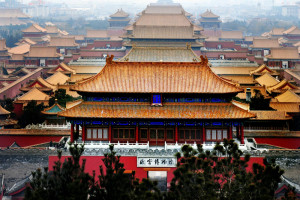



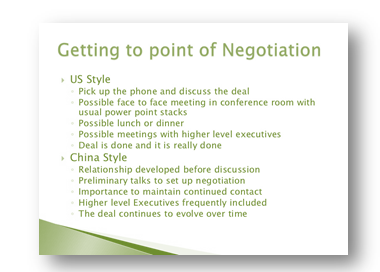
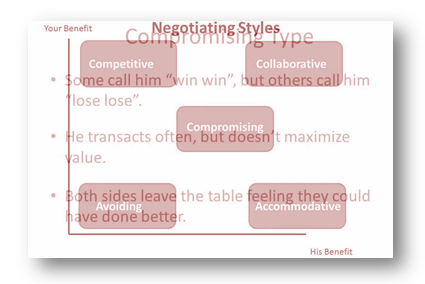



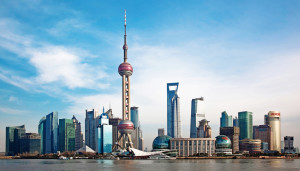
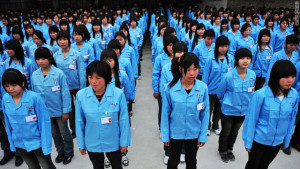



.png)
].gif)
.png)
].png)
].png)
].png)
.png)
].png)
.png)
